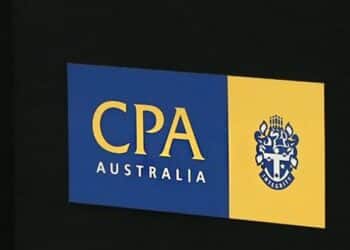The Institute of Managed Account Professionals’ Regulatory Group, which includes representatives from law firms Holley Nethercote and The Fold Legal, as well as industry executives from Macquarie and Praemium, has drafted a letter to FASEA chief executive Stephen Glenfield calling for the standard to be reviewed.
The letter outlined four key problems with Standard 3 in the group’s view, including its inconsistency with established law and regulatory policy, conflicting messages between the standard and FASEA’s guidance, inconsistencies with the application of the code between different members of the advice profession, and the lack of a materiality test in the application of the standard.
IMAP chair Toby Potter said the letter aimed to communicate to FASEA that the regulatory experts saw the standard as “structurally flawed”.
“Importantly, we think it appropriate to note the differences between Standard 3 and the way in which conflicts are required to be addressed by other professions, like law and accounting, which have had considerably longer experience in addressing this issue,” Mr Potter said.
The group also pointed out that Standard 3 was inconsistent with Standard 7, which appeared to allow more nuance when it came to managing conflicts of interest in an advice practice.
“Standard 3, as it currently sits, imposes a significant burden on the provision of advice. It contradicts another standard in the FASEA Code of Ethics, as well as established law,” Mr Potter said.
The group’s letter suggested a legislative amendment be put forward to alter the wording of Standard 3 and bring it more in line with other professions’ methods of dealing with conflicts of interest.
One alternative wording proposed by the group was that “where a relevant provider has a conflict of interest or duty, they must: disclose the conflict; implement appropriate measures to manage the conflict; explain clearly why the conflict will not result in a breach of the best interests duty; and obtain the client’s express consent to the adviser’s handling of the conflict, or alternatively avoid the conflict by refusing to provide the services”.




For a few days I had a small glimmer of hope that we could become a profession.Too bad. I’ll get my Vacuum Cleaner sales tips for rookies manual out again. Oh well. The conflicts that exist in the legal industry are quite different and on a different scale when compared to jamming some institutionally owned product down someone’s throat.
Lets wait to see to how Stephen Glenfield responds to this request.
I expect FASEA will again justify both Standard 3 and Standard 7 and provide a convoluted explanation of the intention rather than the strict application under the law and the wording of each Standard.
I will yet again refer to the FASEA FG002 Code of Ethics 2019 Guidance document on page 5.
It clearly states: ” The Code is a living document SUBJECT TO CHANGE”.
If it is subject to change, then maybe it needs to be changed.
Standard 3 was re-worded from the original version and became a catch all in order to place every adviser that was to receive either a commission payment for risk insurance advice or a variable asset based fee at incredible compromise and at risk of breaching Standard 3.
Standard 3 is a direct play at eliminating risk insurance commission and asset based fees.
FASEA will argue otherwise this is not the intention and argue that advisers can still receive these types of remuneration, however, it is the wording and the application that is important when an adviser has to protect themselves, not FASEA’s intention.
It is wrong and FASEA must accept the potential compromise their process and the document has now created.
If FASEA continue to ignore significant concerns from individuals and organisations fully versed in law and the application of same, then it becomes obvious as to this organisations dogged determination to continue to self protect.
Standard 3 could also be interpreted to preclude fee for service. The intention of Standard 3 is to be so open ended it can be used to persecute any financial adviser for any activity, based on the philosophical bias of those enforcing it.
Absolutely and you can hear the lawyers circling now